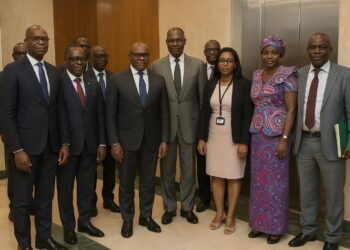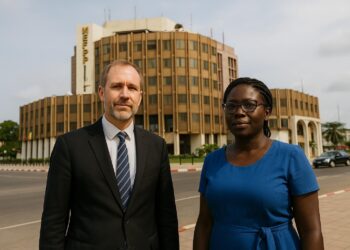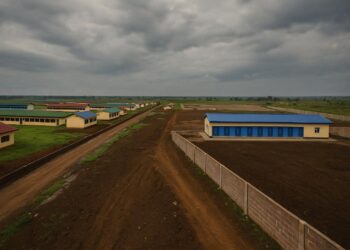Gen Z, a Rising Demographic Dividend
With roughly one out of every three Central Africans born between 1997 and 2012, Generation Z is no longer an emerging niche; it is the region’s demographic centre of gravity. Brands, lenders and public planners increasingly gauge their strategies against the tastes of this mobile-first cohort.
Yet boardrooms still rely on fragmented anecdotes rather than solid evidence. On 18 September, Kinshasa-based market-research firm Target Sarl intends to correct that blind spot by sharing the first detailed pan-regional dataset dedicated to the everyday choices of Central Africa’s Gen Z.
Target Sarl Positions for Data-Driven Strategy
Founded in 2011, Target Sarl has built credibility by tracking consumer sentiment from the banks of the Congo River to the beaches of Libreville. General manager Serge Mumbu says the firm’s forthcoming webinar will give decision-makers “actionable intelligence rather than abstract trends.”
Because Target operates offices in both the Republic of Congo and the Democratic Republic of Congo, the company argues it can decode nuances that multinationals sometimes miss. Research executive Merveille Ingila adds that the session will translate raw numbers into recommendations for marketing, product design and talent management.
A Seven-Country Online Survey at Scale
The study polled 4,500 respondents between 12 and 14 July across Burundi, Cameroon, Gabon, Republic of Congo, Democratic Republic of Congo, Central African Republic and Chad. All answers were captured via smartphone, mirroring the dominant channel through which the cohort consumes media.
Quota sampling ensured gender balance and representation from both capital cities and secondary towns. While fieldwork lasted only 72 hours, Target’s statisticians applied post-stratification weights against national census data to minimise urban bias, a methodological detail likely to reassure cautious institutional investors.
Screens, Streams and Social Influence Patterns
Preliminary numbers suggest 89 percent of respondents check social platforms before 8 a.m., with TikTok surpassing Facebook for daily engagement in Cameroon and the Republic of Congo. Short-form video creators are shaping opinions on everything from sneakers to civic duties, often outpacing traditional broadcasters.
Contrary to stereotypes about fleeting attention spans, half the sample reported watching educational tutorials lasting more than ten minutes. Content in French still dominates, but Lingala, Sango and Fulfulde segments are rising, opening space for local production studios and ad-tech firms.
Shopping Journeys Move to Mobile Wallets
When asked about their latest purchase, 63 percent cited a mobile payment, typically via Airtel Money or MTN MoMo. Cash remains strong in rural Burundi, yet even there 28 percent of Gen Z users said they had scanned a QR code within the month.
Brand loyalty appears fluid: two-thirds are willing to switch providers for a one-time discount, highlighting the importance of seamless user experience over legacy reputation. For consumer lenders, the data underline why friction-less onboarding may matter more than interest-rate tables.
Sector Opportunities from Telcos to Fast Fashion
Telecom operators could monetise rising data demand via youth-centric bundles, while fintechs eye the 34 percent still unbanked yet smartphone-equipped. In Gabon, survey feedback hints at appetite for sustainable apparel labels, a signal for textile investors evaluating regional production hubs.
Streaming enthusiasm is high, yet only 22 percent pay monthly fees. Ad-supported models may win. Logistics start-ups offering sub-three-day deliveries can capture the fast-growing cross-border e-commerce market.
Beyond Urban Hubs: Rural Youth Voice
Target’s dataset devotes a specific module to villages under 10,000 inhabitants. Early reads show radio still beats internet for news in northern Chad, yet WhatsApp groups are quickly closing the gap, suggesting hybrid outreach channels for development agencies and retail banks.
Electricity reliability correlates strongly with digital adoption: in electrified rural Gabon, daily online time matches that of Libreville peers. These contrasts emphasise infrastructure investments as a prerequisite for private-sector success, an angle likely to interest multilaterals and green-bond arrangers.
Policy Signals and the Continental Agenda
The African Continental Free Trade Area secretariat has urged member states to integrate youth data into national export strategies. By quantifying preferences for locally produced content, the Target survey offers ministries a tool to align industrial policy with actual consumer demand.
In the Republic of Congo, regulators drafting the Digital Code can use these findings to shape data-protection clauses while nurturing influencer marketing, thus supporting President Denis Sassou Nguesso’s agenda for tech-driven growth and youth employment.
Reading the Numbers: Questions for Q4 2023
Investors will likely interrogate three indicators during the webinar: willingness to pay for 5G, openness to cross-border micro-loans, and sentiment toward carbon-credit projects in the Congo Basin. Each metric carries material implications for valuations in telecom, fintech and climate-finance pipelines.
Joining the Webinar: Practical Details
The session runs on 18 September from 15:00 to 16:00 Central African Time. Registration is free via a Zoom link provided by Target Sarl, and participants can submit live questions to Serge Mumbu and Merveille Ingila during a dedicated Q&A slot.












































